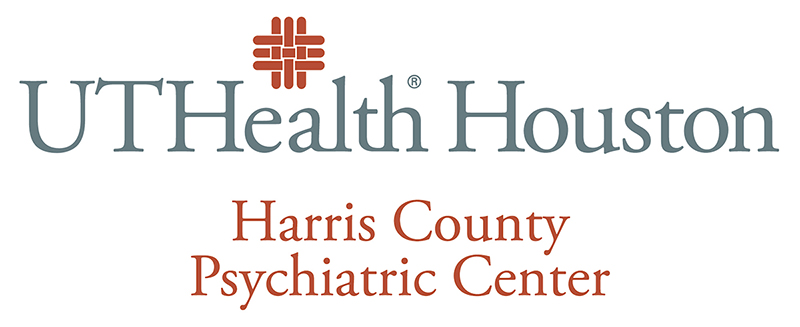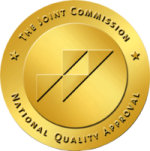UTHealth Houston Harris County Psychiatric Center
Substance Abuse
Who is at Risk • Commonly Abused Substances • Signs and Symptoms •
Consequences • Treatments • How Family and Friends Can Help
Substance abuse is the misuse of a mood-altering substance and is one of the most common and costly problems in society today. We hear about it, see it, and feel its consequences every day, in the media, in school, in the workplace, in our homes. It costs this country untold amounts in property damage and loss, treatment of illness and injury, and even death.
Substance use, such as the morning cup of coffee, the social drink, or the prescribed or recommended medication, is frequently accepted as normal behavior. Abuse occurs when the use of these substances begins to affect relationships, school or work performance, or personal finances, or cause other negative behaviors. At this point, the addiction requires psychiatric and/or medical treatment.
Just about everyone has or will be faced with making decisions about substance use or abuse, however it touches our lives. Education is the first and most critical step toward making the right decision.
Accessibility, peer pressure and the appeal of the physical effects draw people from all walks of life into substance abuse. Many times abuse starts as experimentation. People want to satisfy their curiosity about the drugs, and they are usually in control of their situation. As they continue using the substances to the point of excess, their control slips away and they develop an addiction, eventually leaving them powerless to stop.
In some cases, a person might have a predisposition to substance abuse, based on family history. Some research suggests that immediate relatives of substance abusers are more likely to abuse substances themselves. Other potential risk factors include environmental influences and some mental or emotional disorders.
Not all drugs are physically addictive. Most, however, can cause psychological addiction, where the person feels he or she must have the substance to function. Substances that are most commonly abused fall into the following categories:
Legal Substances
- Alcohol
- Tobacco
- Steroids
- Caffeine
Illegal Substances
- Marijuana (Cannabis; also called dope, grass, pot, weed, hashish, hash)
- Stimulants (include cocaine, crack, amphetamines; also called speed, uppers, rock, coke, snow, blow, nose candy)
- Depressants (include barbiturates, tranquilizers; also called downers, ludes)
- Narcotics/Opiates (include heroin, opium, morphine; also called junk, smack)
- Hallucinogens (include LSD, mescaline, MDA, MDE, MDMA, MMDA, psilocybin, DMT, STP)
- Phencyclidine (PCP; also called angel dust)
- Inhalants (include glue, solvents, propellants, correction and lighter fluid, paint)
Each substance variety causes its own set of symptoms, and users share some common behaviors. In general, however, someone who is abusing a legal or illegal substance will likely display one or more of the following symptoms and behaviors:
- Attitude changes, irritability
- Withdrawal from responsibility
- Changes in work or school attendance, quality of work, or discipline
- Decline in personal appearance and hygiene
- Changes in relationships; association with known substance abusers
- Frequent borrowing of money
- Selling off personal possessions
- Stealing
- Secretive behaviors; frequent trips to restrooms and other private places
- Changes in attire; constantly wearing sunglasses to hide dilated or constricted pupils, constantly wearing long sleeves to hide injection marks
Abusing a substance, legal or illegal, can result in a number of negative consequences. From the health perspective, drugs can cause short- and long-term effects, including:
- High blood pressure
- Heart disease
- Heart or respiratory failure
- Impairment or loss of motor skills
- Weakened immune system
- Memory loss
- Impaired sexual response
Each legal and illegal substance carries its own set of dangers. Used in excess or combined with other substances, they can cause irreversible damage or even death.
But health isn't the only thing at risk. Drug abuse can have serious legal consequences. You might be arrested, put on trial and sentenced to anything from probation to imprisonment. The penalties vary from case to case, but any such experience would surely be embarrassing, expensive and inconvenient.
When substance abuse reaches the point of addiction, it is no longer a bad habit that must be broken. A dependency this strong requires intervention and treatment to overcome. But the abuser first must come to grips with the reality of the addiction and admit that he or she needs help.
Treatment usually begins with detoxification, a period of time in which the body rids itself of the substance, flushing the chemicals from the body. This takes a few days to a few weeks, depending on the substance(s). Depending on the drug and the severity of the addiction, detoxification may take place in the hospital.
Once detoxification is complete, the recovering addict goes through counseling and other supportive therapies. Individual, group and family therapies encourage and motivate the addict to change his or her behavior and commit to a drug-free life.
Recovering from substance abuse is a constant battle for the addict. The person will likely experience withdrawal symptoms that complicate the recovery, and the cravings for the substances don't go away immediately. It is therefore critical for the addict to see treatment through to the end.
How Family and Friends Can Help
Dealing with a relative or friend who abuses drugs can be tremendously stressful. Like the recovering addict, family and friends can find emotional support, understanding and hope from outreach, education and advocacy groups.


